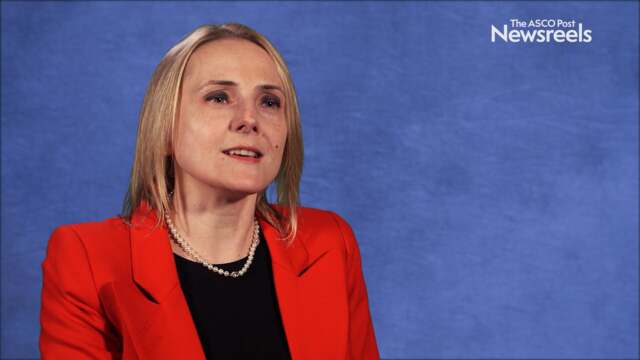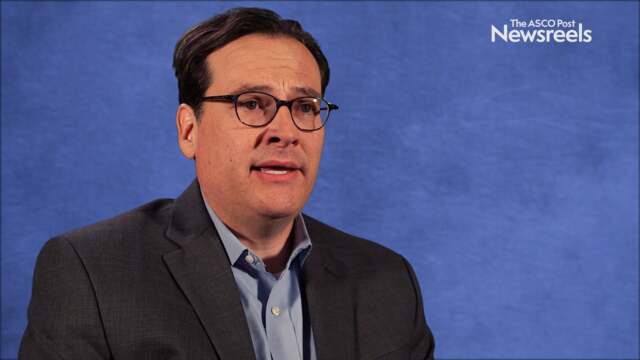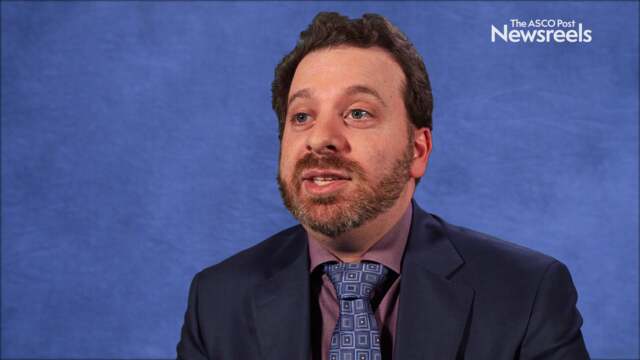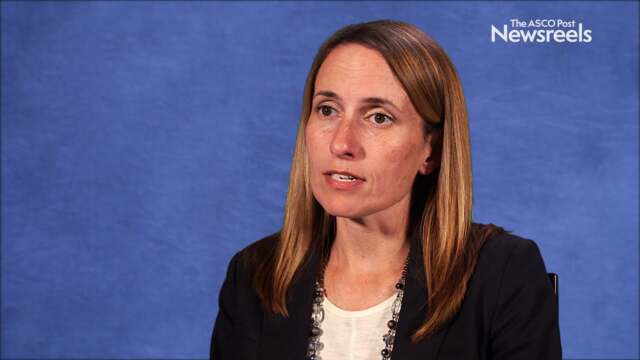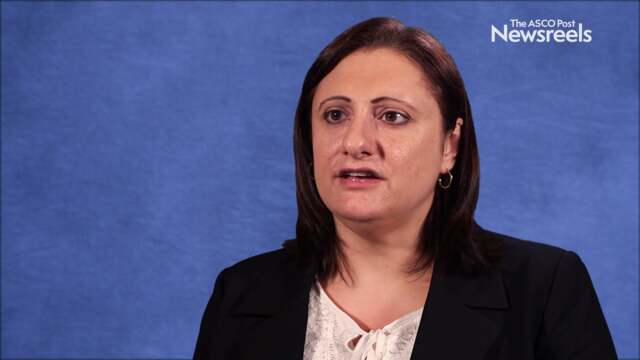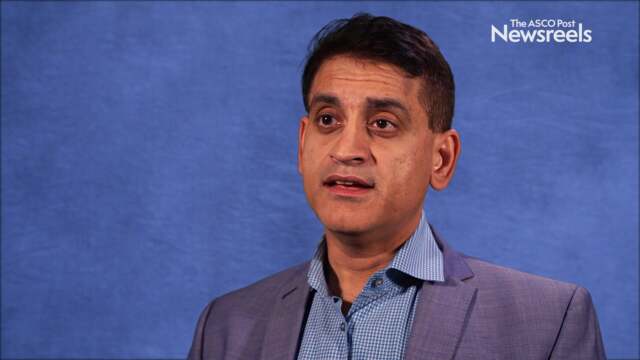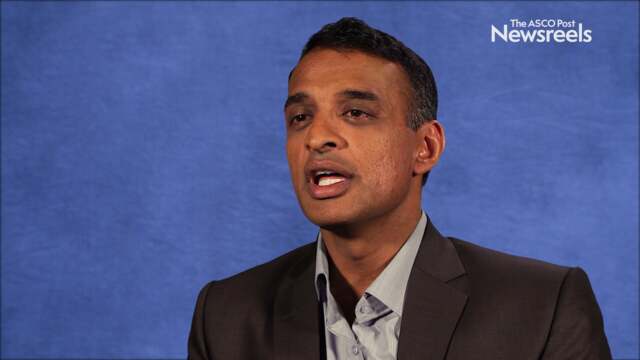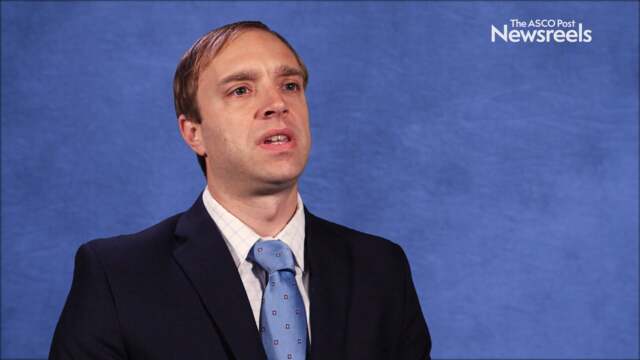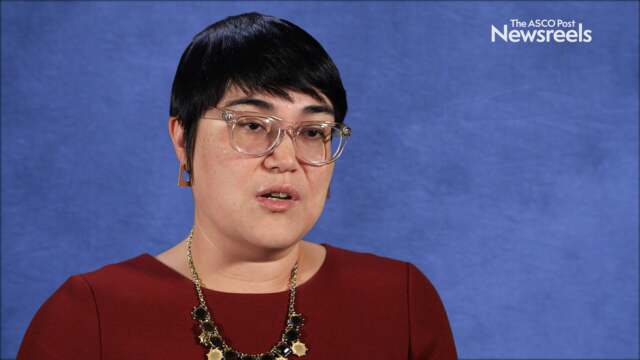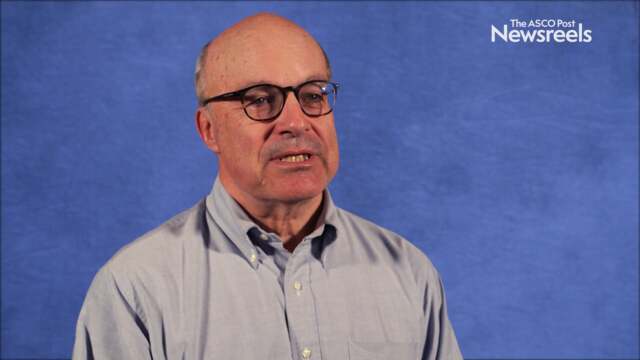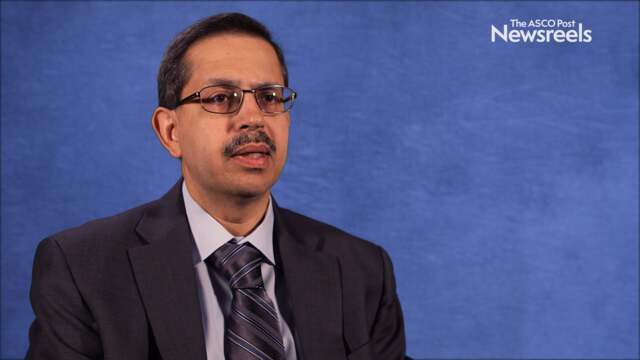2018 ASCO Quality Care Symposium
Modern Clinical Trials: Engaging Stakeholders at the Front Lines of Care
Randomized clinical trials have been providing high-quality evidence for decades, but there are limitations to the traditional design. At the 2018 ASCO Quality Care Symposium, George J. Chang, MD, MS,...
Tackling Financial Toxicity: One Institution’s Roadmap Forward
ALTHOUGH FINANCIAL toxicity has become an important issue in the oncology community, evidence suggests the subject is rarely addressed by oncologists, exacerbating its grave effects on patients wit...
Do Incident Learning Systems Prevent Medical Errors?
ACCORDING TO a study by Johns Hopkins, medical errors are the third leading cause of death in the United States.1 Lakshmi Santanam, PhD, tackled such sobering data at the 2018 ASCO Quality Care Sympo...
Challenges and Successes of Adopting an Oncology Care Model
IN ORDER TO rein in the untenable rise in costs while delivering high-value cancer care, the Centers for Medicare & Medicaid Innovation developed a new payment system—the Oncology Care Model. At ...
End-of-Life Dashboard Drives Transformation With Actionable Personalized Data
A NUMBER OF STUDIES from the palliative care literature have shown that nonbeneficial health-care interventions actually may harm patients’ quality of life, increase patient and caregiver distress, an...
Quality Improvement: Worth the Effort but Not Always Easy to Execute
According to Kaveh Shojania, MD, the keynote speaker at the 2018 ASCO Quality Care Symposium, dedicated quality improvement work can help repair a fragmented health-care delivery system, but it’s cha...
The Opioid Crisis From the Oncology Perspective
As the nation battles an escalating opioid-overdose crisis, which claims more than 100 lives per day, a new study presented at the 2018 ASCO Quality Care Symposium was designed to answer a heretofore ...
Monika K. Krzyzanowska, MD, MPH, on Quality Improvement: Avoiding the Pitfalls
Monika K. Krzyzanowska, MD, MPH, of Princess Margaret Cancer Centre, summarized the Keynote Lecture, including the points that clinicians should carefully plan their quality improvement projects, unde...
Lalan S. Wilfong, MD, on Metastatic Solid Tumors: Limiting Low-Value Care
Lalan S. Wilfong, MD, of Texas Oncology, discusses reducing the use of a white blood cell growth factor treatment in advanced and incurable solid tumors for patients treated at a community oncology pr...
Jeremy Warner, MD, on Patient Navigation: Weathering the Storm of Cancer Care
Jeremy Warner, MD, of Vanderbilt-Ingram Cancer Center, discusses the ways in which patient navigators affect cancer care and how patients benefit.
Lauren P. Wallner, PhD, MPH, on Thyroid Cancer: Reducing Overtreatment With Radioactive Iodine
Lauren P. Wallner, PhD, MPH, of the University of Michigan, discusses her findings from a population-based study, which showed that many patients believe they had no choice about whether or not to rec...
Angela M. Stover, PhD, on Patient-Reported Symptoms: Results From the STAR and PRO-TECT Trials
Angela M. Stover, PhD, of the University of North Carolina at Chapel Hill, discusses study findings on ways to alert clinicians when patients signal symptoms such as pain or diarrhea that may be cause...
Simron Singh, MD, MPH, on Patient-Centered Care: Measuring Experience
Simron Singh, MD, MPH, of Sunnybrook Health Sciences Centre, discusses initial results of his data on a new patient experience measurement strategy used at Cancer Care Ontario.
Jay B. Shah, MD, on Reducing Opioid Use After Urologic Oncology Surgery
Jay B. Shah, MD, of Stanford University, discusses the role that surgeons can play as gatekeepers to the opioid epidemic, including the view that complex cancer operations can be performed with little...
Aaron Lyss, MBA, on Getting the Highest-Value Quality Intervention
Aaron Lyss, MBA, of Tennessee Oncology, discusses ways that clinicians and patients can employ the most cost- and treatment-effective measures, clinical trials, and incident learning systems.
Fumiko Ladd Chino, MD, on Opioid-Associated Deaths in Patients With Cancer
Fumiko Ladd Chino, MD, of Duke University, discusses results from a population study she conducted of the opioid epidemic over the past 10 years and why these medications for cancer pain should contin...
Douglas W. Blayney, MD, on Quality Care: Better, Safer, Cheaper
Douglas W. Blayney, MD, of Stanford University, and winner of the Joseph V. Simone Award for Excellence, summarizes his talk on the expense of cancer care and how we can reduce costs while maintaining...
Neeraj K. Arora, PhD, on Patient-Centered Care in Clinical Practice
Neeraj K. Arora, PhD, of the Patient Centered Outcomes Research Institute (PCORI), discusses his work at PCORI and the central role that patients play in improving care and outcomes. To learn more, vi...
2018 Quality Care: New Approach Successfully Reduces Opioid Use After Urologic Oncology Surgery
In a study conducted by Stanford Health Care, researchers achieved a 46% reduction in opioid use among 443 patients with cancer who underwent a range of urologic surgeries without increasing their pai...
2018 Quality Care: Few Women With Breast Cancer Discuss Costs With Physicians Before Beginning Treatment
Findings from a new study reveal that while many women with breast cancer experience significant financial burden and most prefer to discuss the cost of their cancer care before beginning treatment, f...
2018 Quality Care: Nationwide Survey Reveals Patients With Metastatic Breast Cancer Face Major Financial Stress Due to Treatment Costs
A new nationwide analysis of more than 1,000 people living with metastatic breast cancer from 41 states reveals significant cancer-related financial burden known as financial toxicity, particularly fo...
2018 Quality Care: Opioid Deaths Are 10 Times Less Likely to Occur in Patients With Cancer Compared to the General Population
According to the U.S. Department of Health and Human Services, in 2016, over 42,000 Americans died from opioid overdose, making the epidemic a top public health concern. Although opioids are commonly ...
2018 Quality Care: Older Patients With Advanced Cancer Experiencing Financial Difficulties Have Worse Quality of Life and Mental Health
Older patients with advanced cancer experiencing financial toxicity due to the cost of their treatment have higher rates of severe anxiety and depression and poorer quality of life than patients who d...
